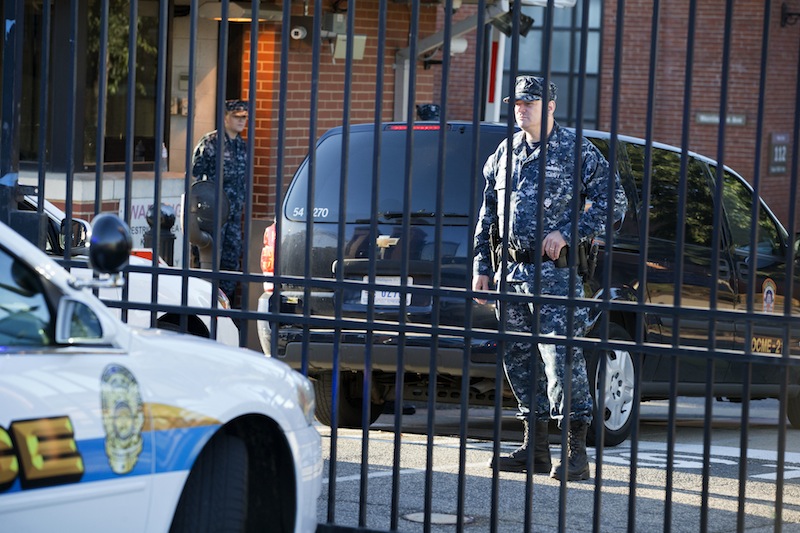The former Navy reservist who killed 12 people at the Washington Navy Yard had the lowest level of government security clearance — one to handle “secret” information — which he was granted while he was in the Navy, officials said. Details about the clearances granted to government employees, contractors and others:
What is a government security clearance?
It’s a special status that authorizes an individual to see classified information and other restricted information. The level of clearance determines the level of classified information the person may handle. Information classified as “secret” is defined as material that would cause serious damage to national security if it were made public; information classified as “top secret” is judged by the government to have the potential to cause exceptionally grave damage.
How many people have clearances?
A January report by the Office of the Director of National Intelligence said that as of October 2012 roughly 4.9 million people held security clearances. The majority — 3.5 million — were “secret,” like the clearance shooting suspect Aaron Alexis had. The other 1.4 million were “top secret.”
More than 1 million of the clearances were held by contractors as opposed to government employees.
How do people get clearances?
Individuals are not allowed to just apply for one. But if the Defense Department, State Department or another federal agency employing a person decides that individual needs a clearance to do a specific job, that employer starts the process by requesting an investigation. The bulk of investigations are handled by the Office of Personnel Management, a federal agency that handles a number of activities including setting government hiring procedures, providing training programs for federal employees and agencies, and doing background investigations for prospective employees as well as for security clearances.
The employee being investigated for the clearance must fill out a lengthy questionnaire that seeks information about a host of issues including work history, education, drug use, criminal record, financial delinquencies, and so on. After the investigation, which in some cases can take a year, a person granted “secret” clearance will have it for 10 years and someone given “top secret” will have it for five years unless stripped of the authorization for some reason.
What happens when the clearance “expires”?
After 10 years of holding a “secret” clearance or five years with a “top secret,” the individual has to fill out the questionnaire again and he or she is re-investigated to see if a renewed clearance will be granted.
People who leave their jobs while their clearances are still good are at an advantage when applying for another job because it looks good on a resume to be someone who has been granted a clearance.
Send questions/comments to the editors.



Success. Please wait for the page to reload. If the page does not reload within 5 seconds, please refresh the page.
Enter your email and password to access comments.
Hi, to comment on stories you must . This profile is in addition to your subscription and website login.
Already have a commenting profile? .
Invalid username/password.
Please check your email to confirm and complete your registration.
Only subscribers are eligible to post comments. Please subscribe or login first for digital access. Here’s why.
Use the form below to reset your password. When you've submitted your account email, we will send an email with a reset code.